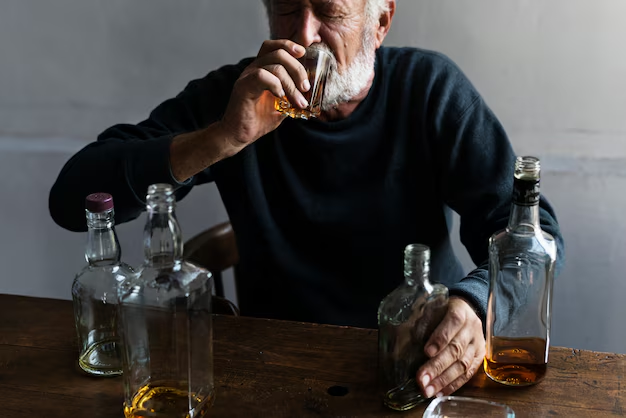Does Alcohol Contribute to Cancer Risk? What You Need to Know
When it comes to alcohol consumption, most people focus on its immediate effects—whether it's the social lubricant at a weekend gathering, a way to unwind after a long day, or even the occasional indulgence in culinary settings. But there's a deeper conversation that's essential to have: Does alcohol contribute to cancer risk? Understanding the relationship between alcohol and cancer is crucial for making informed decisions about consumption and health. Here, we delve into the complex link between alcohol and cancer, offer insights into how alcohol affects the body, and discuss practical considerations for moderating intake.
Understanding the Connection: Alcohol and Cancer
How Alcohol Metabolizes in the Body
When you consume alcohol, it's metabolized into a compound called acetaldehyde. This substance is toxic and has been identified as a carcinogen. Acetaldehyde can cause damage to DNA and proteins, which potentially leads to cancer. Our bodies are equipped with enzymes that convert acetaldehyde into less harmful substances, but excessive alcohol consumption can overwhelm this process, increasing the risk of cellular damage.
Types of Cancers Linked to Alcohol
Research indicates that alcohol consumption is a contributing factor to several types of cancer. Most notably, alcohol has been linked to:
- Breast Cancer: Even moderate drinking can increase the risk, as alcohol can alter hormone levels, particularly estrogen, which influences the growth of breast cancer cells.
- Liver Cancer: Chronic alcohol consumption is a major risk factor for developing liver cancer, given that alcohol is metabolized primarily in the liver.
- Colorectal Cancer: Alcohol can interfere with the absorption of folate, a key vitamin that helps maintain DNA integrity, potentially increasing the risk of colorectal cancer.
- Head and Neck Cancers: Particularly cancers of the mouth, throat, and esophagus, are more prevalent among heavy drinkers, especially when combined with smoking.
The Science Behind Alcohol as a Carcinogen
The International Agency for Research on Cancer (IARC) classifies alcohol as a Group 1 carcinogen. This classification is based on evidence that alcohol consumption has a dose-response relationship with cancer, meaning the more alcohol consumed, the higher the risk of developing cancer.
Social and Behavioral Factors
Cultural Norms and Alcohol Consumption
In many societies, drinking alcohol is an entrenched cultural practice. From celebrations to casual gatherings, alcohol is often present and socially accepted. This normalization can obscure the health risks associated with excessive drinking. Understanding regional and social attitudes toward alcohol can help highlight the need for awareness and education about its effects on health.
Alcohol and Lifestyle Choices
The consumption of alcohol often coincides with other lifestyle factors, such as diet, physical activity, and smoking, which together can influence cancer risk. A holistic view of lifestyle choices is essential for understanding how alcohol fits into broader health and wellness decisions.
Practical Steps Toward Moderation
Guidelines for Safe Consumption
While complete abstinence from alcohol is the safest choice for avoiding cancer risk related to its consumption, moderate drinking guidelines provide a framework for those who choose to drink. For men, moderation is generally defined as up to two standard drinks per day, while women are advised to limit intake to one standard drink per day.
Strategies to Reduce Alcohol Intake
- Mindful Drinking: Pay attention to when and why you drink, and seek healthier ways to deal with stress or social anxiety.
- Alternatives and Substitutes: Consider non-alcoholic beverages or mocktails that provide the social experience without the risks.
- Set Limits and Stick to Them: Avoid keeping large quantities of alcohol at home, and plan alcohol-free days.
Importance of Regular Screening
Regular medical check-ups can help in early detection of potential health issues. If you consume alcohol regularly, discussing cancer screening options with your healthcare provider may be beneficial.
Empowering Choices: Weighing the Risks and Benefits
Balancing Enjoyment with Health
For many, alcohol serves as a source of enjoyment and a way to socialize. The key is to weigh these benefits against potential health risks. Being informed allows you to make conscious choices about when, how much, and under what circumstances you consume alcohol.
Future Research Directions
As science continues to evolve, ongoing research is essential for understanding the nuanced relationship between alcohol and cancer. Emerging studies may shed light on genetic factors that influence susceptibility to alcohol-related cancers or develop new strategies for mitigating risks.
In a world where social and cultural pressures are omnipresent, understanding the risks associated with alcohol consumption is imperative. Knowledge empowers us to make informed, health-conscious choices. By moderating alcohol intake, exploring alternatives, and prioritizing health screenings, we can strike a balance between enjoying life's pleasures and safeguarding our well-being.
Quick Reference: Key Takeaways and Tips 🍷🔍
- Alcohol and Cancer Link: Alcohol is a known carcinogen linked to cancers of the breast, liver, colorectal region, and head and neck.
- Metabolic Impact: Acetaldehyde, a byproduct of alcohol, damages DNA and proteins, increasing cancer risk.
- Social Influences: Cultural norms can obscure the health risks of alcohol, making awareness essential.
- Moderation Guidelines: Up to 1 drink a day for women, 2 for men—but less is always safer.
- Mitigation Strategies:
- Practice mindful drinking.
- Explore non-alcoholic alternatives.
- Regular health screenings.
- Informed Decisions: Balance the enjoyment of alcohol with potential health risks.

Related Articles
- Are Breast Cancer Lumps Painful
- Are Chills a Sign Of Cancer
- Are Colon Spasms a Sign Of Cancer
- Are Lytic Lesions Always Cancer
- Are Polyps Cancer
- Can a Blood Test Detect Cancer
- Can a Ct Scan Detect Cancer
- Can a Dexa Scan Show Cancer
- Can a Gastric Emptying Scan Show Cancer
- Can a Lung Biopsy Cause Cancer To Spread
